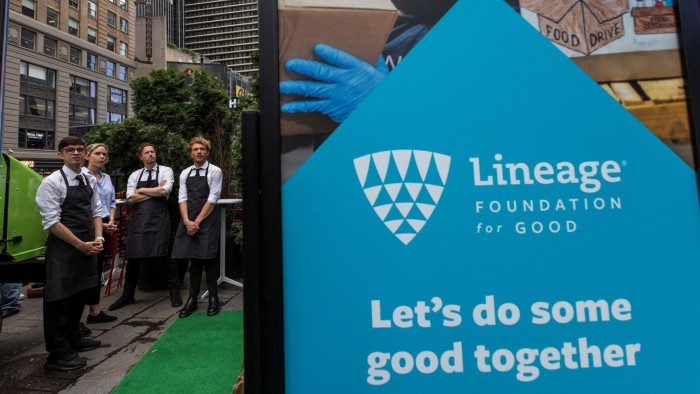Unlock the Editor’s Digest for free
Roula Khalaf, Editor of the FT, selects her favourite stories in this weekly newsletter.
One of the hottest investment areas of recent times is now feeling a little chilly. Earlier this year, Lineage, an aggregator of cold-storage warehouses around the world, went public in the US raising $4.2bn. Cold storage had become a darling of Wall Street with private credit and infrastructure private equity funds, such as Blackstone, targeting the sector for solid and predictable returns less prone to recessions. Lineage itself had an interesting story, with its founders meeting as junior trainee bankers at Morgan Stanley 25 years ago.
The pair eventually started acquiring warehouses, one by one, spending more than $10bn in capital to create a freezer empire. Today, Lineage has more than 500 facilities across the globe. It boasts an enterprise value north of $20bn, with each of the founders billionaires.
However, shares of Lineage are down a quarter from their summer IPO price. Shares in rival Americold have also cooled, down 29 per cent for the year. Suddenly, these supposedly stable toll collectors that Wall Street likes to tout do not look so reliable.
Lineage is organised as a real estate investment trust (Reit), a structure that avoids corporate tax as long as most earnings are paid out to shareholders as dividends. The company’s thesis is that cold storage has historically been fragmented and that centralised ownership could create efficiencies that had not existed before. With rising incomes and living standards, meat and seafood consumption will rise over time, creating a consolidation opportunity. And while Lineage is focused on food, cold storage for life sciences has also attracted investor dollars.
Cold-storage facilities prospered in the wake of the pandemic, but the business has become trickier in 2024. Food companies and grocery stores are rationalising inventories that had built up amid 2020 and 2021 supply-chain snarls and elevated customer demand. Third-quarter revenue growth at Lineage was essentially flat year on year. And even after the share price slide, Lineage’s EV/ebitda multiple is around 17 times with a dividend yield of a modest 3.6 per cent, suggesting additional downside remains.
Infrastructure business models are designed to compound earnings and cash flow over a long cycle and so the temporary struggles at Lineage may not be consequential. It may be that lending to such businesses, rather than owning equity, proves the better risk-adjusted punt. But when high finance finds a hot asset class, the pile-in inevitably depresses future returns.
Read the full article here

